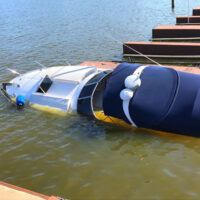Speeds, Wakes, And Your Boat Accident Claim

There are many different items that need to be assessed when a person is injured in a boating accident. If you are seeking compensation for an injury sustained while boating, it is important you understand which details will be combed over by an insurance claims adjuster and other professionals working on the claim or case.
To prove negligence, there must be documentation that a person or party did not act with a reasonable level of care. If you are unsure about the strength of your claim, talk to a Baltimore personal injury lawyer. Your attorney can negotiate a settlement for you.
Details and Facts to Assess
The range of situations that could lead to a personal injury claim following a boat accident is vast. How your claim will be handled will depend on if the accident happened because there was a collision between boats or if a boat you were a passenger on struck a submerged object or rock.
For instance, if the situation was one when one boat hit another boat, the type of boat you were on would be a large part of determining fault and negligence. If both of the vessels were motorboats, both operators could carry a percentage of fault. But if a motorboat and a sailboat collided that may not be the case, particularly because motorboats have a responsibility to stay clear of sailboats.
Some questions that will be asked and assessed when liability is being determined:
- What was the travel speed of each boat involved in the incident?
- Were there any weather concerns or visibility issues?
- Did the wake of another boat play a role and if so, how large was it?
- Were they motorboats? Sailboats? Another type of vessel?
- Was it a high traffic boating area?
- Did one boat try to warn another boat before the accident occurred?
These questions are important because if an accident happened because a motorboat was traveling fast and creating a large wake in a no wake zone that was a high traffic area, they are likely to be held liable. When there were no witnesses and the crash happened in an isolated area, negotiations can become more complicated.
Flares, Life Jackets, and Other Safety Items
It is also important to note that boat owners and operators are required to have safety items on a boat. These items likely include fire extinguishers, flares, and life jackets, for example. If your injury could have been avoided had one or more of these safety items been on board the vessel, the boat owner or operator could be held liable. To have the details of your situation assessed properly, connect with a Baltimore personal injury lawyer.
Did you sustain an injury when traveling in a Baltimore or DC boat? If you have high medical expenses, connect with a skilled attorney who can navigate complex claims. Have an experienced attorney work for you. Reach out to the legal team at Iamele & Iamele, LLP. With years of personal injury claim knowledge, our attorneys can help. Contact us today for a free initial consultation.

